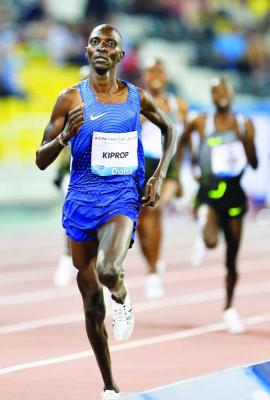×
The Standard e-Paper
Home To Bold Columnists

Asbel Kiprop of Kenya competes in the men's 1500 meters race during the IAAF Diamond League Meeting in Doha, Qatar, 06 May 2016. [File, Standard]
When Asbel Kiprop announced his switch to motorsport from athletics, it was a picture of a frustrated athlete, who seeks to find peace at the steering wheel after his legs were slowed down by the World Anti-Doping Agency (WADA).